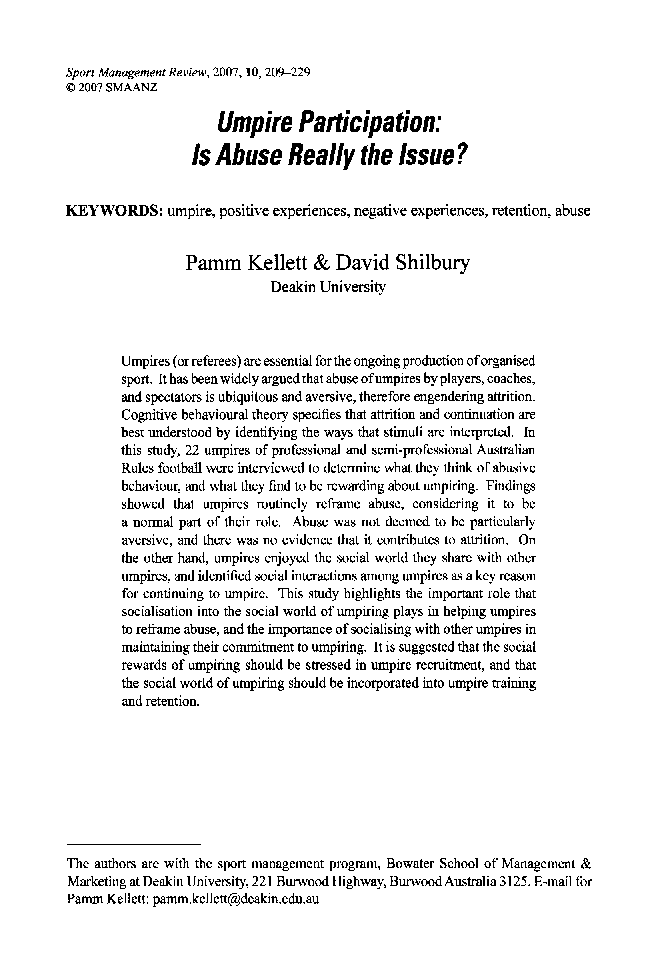| Article ID | Journal | Published Year | Pages | File Type |
|---|---|---|---|---|
| 141134 | Sport Management Review | 2007 | 21 Pages |
Umpires (or referees) are essential for the ongoing production of organised sport. It has been widely argued that abuse of umpires by players, coaches, and spectators is ubiquitous and aversive, therefore engendering attrition. Cognitive behavioural theory specifies that attrition and continuation are best understood by identifying the ways that stimuli are interpreted. In this study, 22 umpires of professional and semi-professional Australian Rules football were interviewed to determine what they think of abusive behaviour, and what they find to be rewarding about umpiring. Findings showed that umpires routinely reframe abuse, considering it to be a normal part of their role. Abuse was not deemed to be particularly aversive, and there was no evidence that it contributes to attrition. On the other hand, umpires enjoyed the social world they share with other umpires, and identified social interactions among umpires as a key reason for continuing to umpire. This study highlights the important role that socialisation into the social world of umpiring plays in helping umpires to reframe abuse, and the importance of socialising with other umpires in maintaining their commitment to umpiring. It is suggested that the social rewards of umpiring should be stressed in umpire recruitment, and that the social world of umpiring should be incorporated into umpire training and retention.
